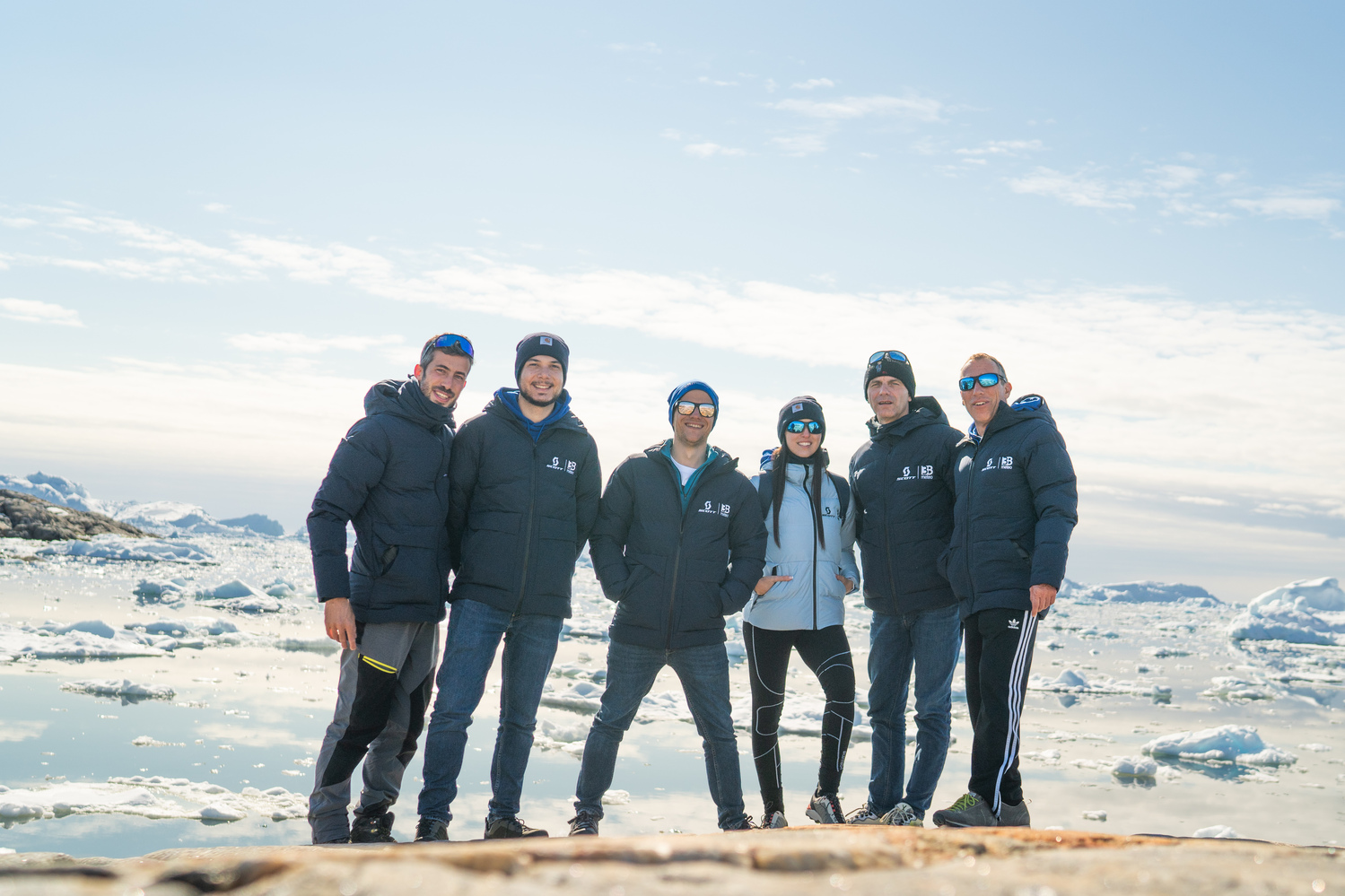From 16th to 29th June, 3B Meteo team reached Greenland to witness the effects of climate change on the world’s largest island. The mission involved scientists, communicators, and experts – Paolo Corazzon, meteorologist and media manager 3B Meteo, Sergio Brivio, founder and partner, Luca Pace, meteorologist and head of the weather department, Vanessa Minotti, media expert, Isacco Emiliani, photographer and videomaker and Samuele Catanese, social media specialist. An expedition to Greenland aimed not only to verify on site the effects of climate change, but to disseminate the information gathered and raise awareness.
It represented the first experience of a project that will continue in the upcoming years in different scenarios. 2023 started in Greenland because it is right from the artic latitudes that the upshots of an unsustainable development are clear. The increase of temperatures are contributing to the melting process of the glaciers, with a consequent rise in the global sea level faster than was ever believed. Equally, flora and fauna have been facing challenges while adapting to altered ecosystems. Since the late 1970s, the Arctic has lost almost 2 million square kilometres of ice, with an annual loss rate of about 37,000 square kilometres. But the effects of climate change are much less abstract than one can imagine and are visible in everyday life.
Indeed, the initiative and the results are as staggering as engaging: the mission has been recorded and witnessed through 3B Meteo’s social media with an interesting communication choice. The website provides onlookers with the details of the team and the programme, and it has collected almost half a million visitors. Thereafter, every day it was possible to admire images and listen to the videos of the group, with unique experiences and interviews to the locals.
As the one with a Inuik guide, who showed the team how the village is changing due to global warming. “There is much less ice, so much that some houses are sinking into the bare ground, lacking the support of the existing ice, which is already melted for several months of the year. Our bay counts much less sea ice than before, when it was completely frozen from October to May. Currently, ice only forms in January and February“.
The dissemination approach is truly stimulating. It generates sympathy and the participation of the audience, who looks for discovering more about the team’s daily experiences. The involvement of media specialists is relevant: environmental communication is a challenging task and working hand-in-hand with scientist makes the collective awareness happening.
Learn more about the results of the mission in Greenland!

